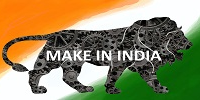About Us
The Concept of Cooperatives :
Co-operatives are autonomous, economic institutions of user members united voluntarily to meet their common economic, social, cultural needs and aspirations through a jointly owned and democratically controlled enterprise. As self-reliant and self-sustaining institutions functioning in a free, fair and transparent way in keeping with the principles and values of the cooperative movement, Member centrality and member development would be key drivers along with professionalism, quality and integrity, the hallmarks.
Co-operative movement in Tripura :
Tripura is situated in the remotest corner of the country under North Eastern region and connected with rest of India through almost hilly terrain. The cooperative movement in Tripura started long back compared to the rest of the country, and the societies were formed in accordance with the provisions of Bombay Cooperative Societies Act, 1925. With the enactment of Tripura Cooperative societies Act, 1974, movement got a fillip and diversified activities were observed in the working of cooperative institutions.
Co-operative movement in Tripura started its career with the registration of Swasti Samabaya Samity Ltd. in 1949. But the movement got momentum since 1978 after the enactment of Tripura Co-operative Societies Act, 1974 and the Tripura Co-operative Societies Rules ,1976.
In Tripura 2- tier system of co-operative movement is followed i.e. State level & Pry. Level. The dominant sector of the Co-operative movement in the state comprises Agri. Credit Societies i.e. LAMPS,PACS, FSS Marketing, Fisheries and Weavers societies. The co-operative movement in Tripura encompasses the economic activities with special focus on the economically backward classes including tribal section of people.
The cooperative movement in Tripura has been passing through several phases of development and the cooperative movement is striving to achieve its desired goal. Co-operative societies are not only limited to the credit sector but also extended to marketing, milk supply, weavers, farming, fishery, livestock, handicraft, processing, industrial, consumer co-operatives etc.
It is a fact that because of late introduction of the movement in the state, compared to most of the other States in India which started in the year 1904, in the Co-operative movement in Tripura itself is yet to come at par in shape and coverage. Besides this, the geographical isolation of the state from the rest of the country has posed many stumbling blocks in its growth and development. During a span of last 7(seven) years, many steps have been initiated for streamlining the activities of the Co-operatives forwarding it in a better form.






